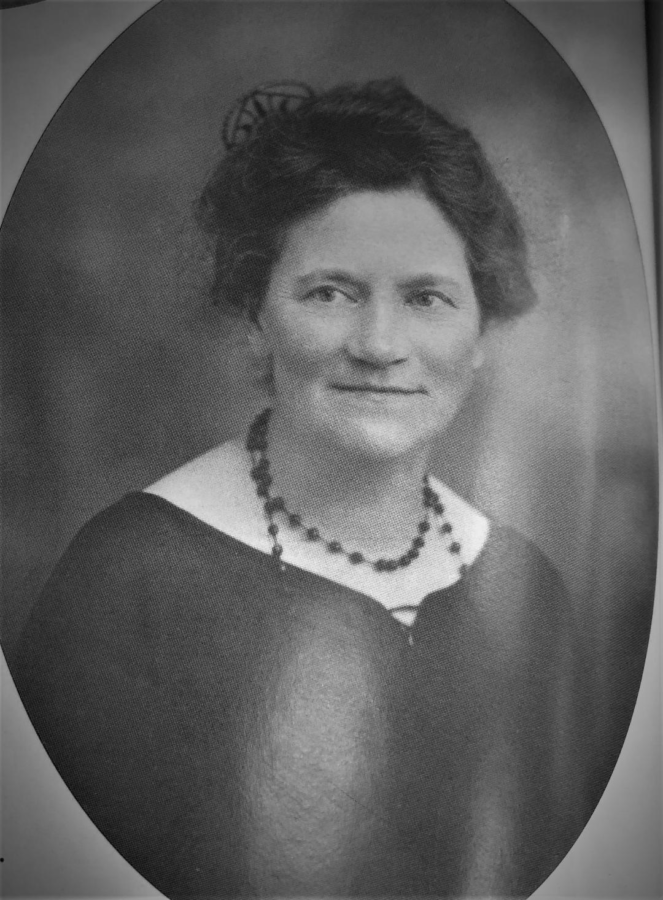
Kieran’s Our City, Our Town Article,
Cork Independent, 24 August 2023
Recasting Cork: Sinn Féin Prepares for a General Election
In light of the impending General Election on 30 August 1923, the Sinn Féin election campaign was ramped up. On 24 August 1923 in the city, a public meeting was held on the Grand Parade. Speeches wero delivered by well-known supporters of the Republican movement. The Cork Examiner describes the event. The MacCurtain Pipers’ Band was in attendance. During the meeting bouquets were presented to two of the speakers. Miss Mary MacSwiney and Miss Mary Comerford. Mr Daniel Corkery occupied the chair.
Daniel Corkery, who first spoke in Irish, claimed that the election was an unfair one due to its summer date. He thanked those who were assisting their candidates in the election. He referred to the raiding of the Republican offices in Dublin, the arrest of their director of elections, and the treatment of the prisoners. He appealed to all present to keep together and to join Sinn Féin clubs.
Daniel claimed that the Labour movement had been weakened by its representatives remaining in the Dáil in the post Treaty era. He denoted that the only force in Ireland that had beaten the “capitalistic Press and Capital was the spirit of Irish Nationality”. He continued; “No one from a Republican platform wants to say anything that would injure the Labour Party or divide the ranks of Labour, but there was a terrible fight before the working man in the country”.
Mary MacSwiney, who spoke first in Irish and afterwards in English, received an ovation. She claimed that the Sinn Féin movement were asked to go into the British Empire with their heads up or their hands up with a leadership she could not trust; “We stand for a free and independent Ireland; we swore our oath to the Republic and mean to keep it. mean to make Ireland free and prosperous, and we would not be mislead into thinking that they could make Ireland prosperous by sending work out of Ireland, by sending goods made out of Ireland, and by giving unemployment doles to the people at home”.
Mary argued that the proper way to support Irish industries was by purchasing them and by protecting them and guarding them against all profiteering, and that was what Sinn Féin and the Republican Party promised them to do if they were returned at the General Election.
As regards the interned Republican prisoners in Irish gaols, Mary wanted to tell the assembled crowd that for two months the relatives of the men in Newbridge had no letters from them and had not been allowed send parcels to them. The reason was that the men tried to make a tunnel; “The men in the prisons of the Free State Government could hardly live on the food they were getting, and if they bad extra food and cigarettes they came from friends outside, who at enormous sacrifice were trying to send them a little help”.
There was one matter Mary wanted particularly to deal with. She drew attention to the fact that some of the Republican literature was printed in Manchester. She claimed that the reason they had had to get pamphlets and papers printed in Manchester was because twenty printing machines had been destroyed by the Irish Free State; “We have not been allowed to print even a little leaflet until recently, and since the election campaign began their papers had been seized and burned and their people threatened…we therefore ask them by their votes on Monday next to declare for free speech and for free press, and that we can no longer support people who have hounded the Republicans, who have burned our printing presses and destroyed our means of living, because that is not the will of the people, and the people will not stand for it”.
Mary wished to also say some words about majority rule. She maintained that she was a democrat but would not respect the Irish government giving allegiance to the King of England; “I stand for the upliftment of every man. woman and child in Ireland, for an equal chance for the poor and the rich, but if there was to be inequality that the advantage was to be given to the poor for a change… I stand for the right of every man to the inheritance of his country, that he must be a free citizen in every shape, free to educate his children as he likes, free to bring thorn not with the bare sustenance…I stand tor majority rule, but will never obey a government that gives allegiance to the King of England”.
Professor Stockley, Mr McArthur (Dublin), Mr Nolan, Mr K Walsh, and Máire Comerford also spoke, and appealed for united support for the Republican candidates. Wicklow-born Maire Comerford (1893-1982) was a leading national figure in Cumann nBan during the Irish War of Independence and her anti-Treaty stance led her to go on hunger strikes whilst imprisoned in gaol like Mary MacSwiney. In August 1923 she helped the Sinn Féin General Election campaign in Cork.
On 30 August 1923, Mary MacSwiney was elected for the Cork Borough in the general election. Her two running colleagues for Sinn Féin, Frederick Murray and Con Lucey, were unsuccessful in their quest for a seat.
Upcoming Historical Walking Tour (free, no booking required):
Sunday 27 August, Stories from Blackrock and Mahon, meet in the carpark below Blackrock Castle, 2pm.
Caption:
1216a. Mary MacSwiney, c.1920 (picture: Cork City Library).